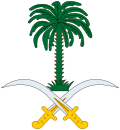History
Australia and Saudi Arabia established relations following the end of World War II. [1] Saudi Arabia and Australia were part of the joint-alliance with the United States during the Cold War, as both were strongly anti-communist and hostile to the Soviet Union. [2]
Australia first appointed a resident ambassador in 1974, with the embassy located in Jeddah along with those of other foreign legations. Saudi Arabia appointed its first resident ambassador in 1982, establishing an embassy in Canberra. [3] The Australian embassy was moved to the Saudi capital Riyadh in 1984 at the request of the Saudi government. [4]
21st century
In 2016, it was reported that Saudi embassy staff in Canberra overspeed and do not pay their fines. [5]
In 2018, after Jamal Khashoggi was assassinated, the Australian government condemned the Saudi authorities and stated that Australian diplomats would not be attending an international event later that year. [6]
In 2019, when Saudi Arabia announced Saudi Vision 2030, Australia was viewed highly for its contribution to the vision development. [7]
Economic relations
In 2021, the two-way goods and services trade totalled $2.93 billion. Saudi Arabia is a substantial market for Australian beef, sheep meat, barley, wheat, dairy products, cosmetics, pharmaceuticals, vehicle parts and accessories and vegetables. [1]
This page is based on this
Wikipedia article Text is available under the
CC BY-SA 4.0 license; additional terms may apply.
Images, videos and audio are available under their respective licenses.


